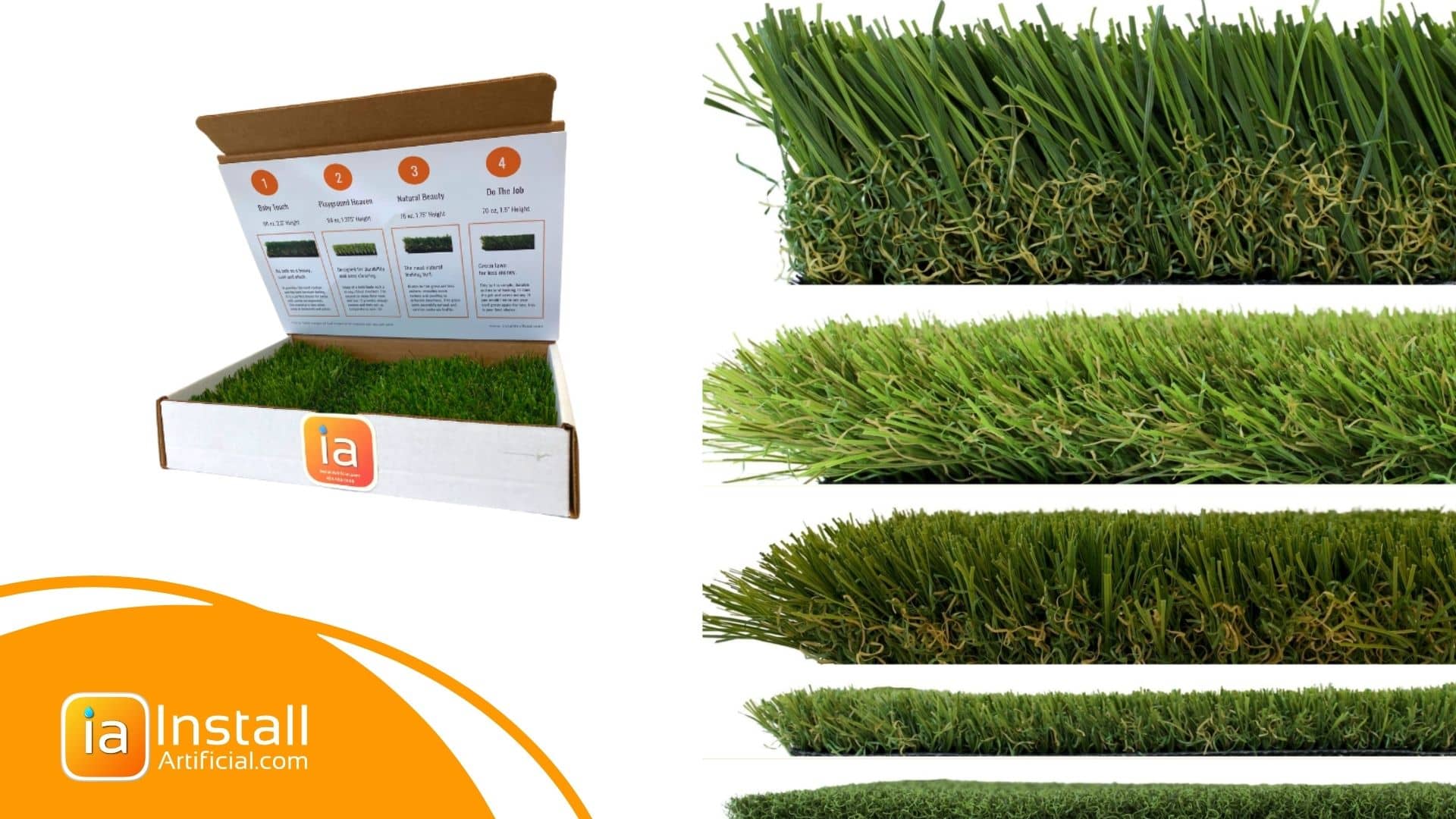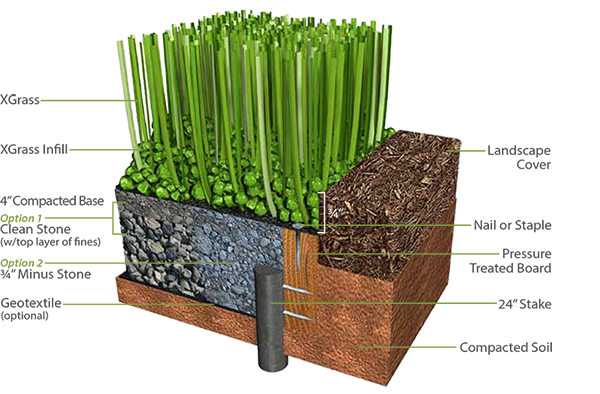Revamp Your Outdoor Area with Backyard Artificial Grass Canoga Park
Revamp Your Outdoor Area with Backyard Artificial Grass Canoga Park
Blog Article
Leading Factors to Think About Artificial Turf for a Low-Maintenance and rich Yard
As homeowners progressively look for lasting remedies for exterior areas, man-made lawn provides an attractive alternative to traditional lawns. The benefits prolong past simple aesthetic appeals and sustainability; checking out the complex effects of fabricated lawn exposes an extensive approach to backyard administration that advantages deeper consideration.
Year-Round Plant
Among the most significant advantages of synthetic yard is its capability to offer year-round greenery, despite climate problems. Homeowners usually deal with obstacles in preserving a vivid yard as a result of seasonal modifications, dry spells, or heavy rains. Artificial lawn removes these issues, making certain a regularly lavish appearance throughout the year.
This artificial option is crafted to withstand different climate scenarios, from sweltering summer warm to cold winter months temperatures. Unlike natural yard, which might brown or end up being irregular throughout extreme conditions, synthetic grass keeps its vibrant color and structure, boosting the visual appeal of any type of landscape.
Additionally, man-made yard is resistant to pests and conditions that typically influence all-natural yards. This resilience adds to its long-lasting appeal, as there is no demand for chemical therapies or fertilizers that can be hazardous to the setting. Furthermore, house owners can take pleasure in the aesthetic advantages of a properly maintained grass without the intermittent obstacles postured by all-natural yard treatment (backyard artificial grass).
Lowered Upkeep Efforts
Synthetic turf considerably reduces maintenance initiatives, enabling property owners to delight in a beautiful yard without the time-consuming tasks related to natural turf care. Among the most notable benefits of synthetic turf is the removal of routine mowing. With no demand for a lawnmower, house owners save both time and the price of upkeep related to this equipment.

Cleaning up synthetic turf is simple; an easy rinse with a hose pipe or the occasional brushing to remove particles is usually enough - artificial grass. This simplicity of care allows home owners to invest even more time appreciating their exterior areas as opposed to laboring over them. In recap, the lowered upkeep efforts connected with fabricated yard make it an attractive choice for those seeking a beautiful, hassle-free backyard
Water Preservation Perks
The considerable reduction in upkeep efforts connected with man-made turf reaches water preservation, making it an environmentally pleasant choice for property owners. Traditional yards require significant amounts of water to continue to be rich and dynamic, often bring about extreme water use, especially in deserts. On the other hand, synthetic grass gets rid of the need for routine watering, significantly lowering the general water intake in your yard.
By selecting synthetic turf, property owners can conserve countless gallons of water every year. This change not only advantages private families but also adds to broader environmental initiatives intended at decreasing water waste. In locations experiencing water deficiency, the adoption of man-made grass can play a significant role in reducing the effects of drought and ensuring that important water resources are utilized more effectively.
In addition, the installation of synthetic yard can aid reduced metropolitan water demand, benefiting the community all at once. With expanding awareness of environmental problems, selecting fabricated grass acts as a positive action towards sustainable landscaping, helping to protect natural water sources while preserving a visually pleasing outside area (artificial grass installation). In summary, man-made lawn provides a compelling service for water conservation, lining up ecological duty with modern-day landscape design demands

Parasite and Allergy Decrease
A considerable benefit of setting up artificial turf is its capability to reduce bugs and irritants in outside rooms. Conventional lawn lawns commonly act as breeding grounds for bugs such as insects, ticks, and ants, which can create pain and health threats for family pets and family members. In comparison, fabricated grass gets rid of the organic product that brings in these insects, therefore significantly reducing their populaces in your yard.
Furthermore, all-natural yard can harbor mold, pollen, and other irritants, which can cause allergies and respiratory system issues for sensitive individuals. Synthetic lawn provides a cleaner environment, decreasing the capacity for allergenic responses. Unlike all-natural yard, synthetic grass does not produce pollen, making it an outstanding choice for allergic reaction patients looking for to appreciate their outside rooms without the threat of flare-ups.
In addition, the lack of dirt in artificial turf means there is less dirt you can look here and dust, more decreasing air-borne irritants. This low-maintenance option not just improves the aesthetic appeal of your yard but additionally advertises a much healthier exterior environment, permitting family members to appreciate their lawns without the continuous worry of irritants and bugs. Therefore, man-made turf is a tactical choice for those prioritizing comfort and wellness in their exterior home.
Long-Term Expense Financial Savings
Spending in synthetic turf can cause considerable long-term price financial savings for house owners. While the initial financial investment might seem substantial, the economic benefits over time can be substantial. Man-made grass removes the requirement for normal grass maintenance costs, such as mowing, feeding, and watering. Traditional yards often require substantial resources to maintain a rich appearance, specifically in areas vulnerable to drought or severe climate condition.
Moreover, the durability of artificial turf additionally enhances its cost-effectiveness. A lot of top quality man-made grass products can last 15 to 25 years with marginal upkeep, decreasing the demand for substitute or considerable repair services. In contrast, natural yard might call for frequent reseeding and routine treatment, which can promptly add up in expenses.
Energy financial savings are another vital aspect. Home owners can expect to see lower water expenses, as artificial grass does not call for watering. Additionally, the reduction in lawn care services can maximize useful time and sources, permitting homeowners to allot their budgets elsewhere.
Conclusion
In summary, synthetic lawn provides many benefits for home owners looking for a vivid and low-maintenance landscape. Its capacity to give year-round plant, paired with lowered upkeep initiatives and substantial water preservation, makes it an attractive selection. Additionally, the decrease of allergens and parasites contributes to a healthier outdoor environment. Ultimately, the long-term price financial savings related to artificial turf solidify its standing as a sustainable and sensible solution for improving outdoor spaces.
Man-made yard substantially reduces upkeep initiatives, permitting homeowners to delight in an immaculate lawn without the taxing tasks connected with natural lawn care.The considerable reduction in upkeep initiatives linked with artificial turf expands to water preservation, making it an ecologically pleasant option for house owners. In contrast, man-made grass removes the requirement for regular Recommended Reading watering, substantially decreasing the total water consumption in your backyard.
In areas experiencing water deficiency, the fostering of artificial lawn can play a substantial function in minimizing the results of drought and ensuring that valuable water sources are used much more effectively.
With view it expanding recognition of ecological issues, picking fabricated lawn serves as a positive step towards sustainable landscaping, helping to preserve all-natural water resources while keeping an aesthetically pleasing outside area.
Report this page